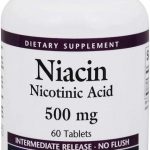
Contents
licorice
Brand and Other Names: alcacuz, Chinese licorice, gan cao, gan zao, glycyrrhiza glabra, lakritze, Lakritzenwurzel, orozuz, regliz, Russian licorice, Spanish licorice, sweet root, yashtimadhu, yo jyo hen shi ko
Drug Class: Herbals
What is licorice, and what is it used for?
Licorice is an herbal supplement extracted from the root of the plant Glycyrrhiza glabra which is cultivated in Asia, Middle East, and Europe. Licorice is used as an alternative medicine for many ailments including cough, sore throat, mouth sores, heartburn, peptic ulcers, and infections. However, there is no scientific evidence to support many of these uses. Licorice extract is used as a sweetener in food products, soft drinks, snacks, and herbal medicines to mask their bitterness.
The sweetness of licorice (black licorice) comes from its component glycyrrhizin which is 50 times sweeter than cane sugar (sucrose). The primary mechanism of glycyrrhizin is mineralocorticoid-like activity similar to aldosterone, a hormone produced by the adrenal gland. Aldosterone helps balance the levels of sodium, potassium, and water in the body by increasing reabsorption of sodium and water and excretion of potassium.
Licorice is useful in treating adrenal insufficiency (Addison’s disease) because of glycyrrhizin’s mineralocorticoid effects. Studies indicate that components of licorice have antioxidant, anti-inflammatory, antiviral, and anticarcinogenic properties. Licorice also acts like estrogen and has been used effectively with spironolactone to treat polycystic ovarian syndrome (PCOS).
Suggested therapeutic uses of licorice include:
- Adrenocortical insufficiency
- Peptic ulcers
- Gastritis
- Heartburn
- Hepatitis B viral infection
- Dry cough
- Sore throat
- Upper respiratory inflammation
- Bronchial inflammation (bronchitis)
- Joint inflammation (arthritis)
- Prostate cancer
- Systemic lupus erythematosus, an autoimmune condition
Some licorice dietary supplements have the glycyrrhizin removed from black licorice and are sold as deglycyrrhizinated licorice (DGL), which may produce fewer side effects. Many licorice products manufactured in the United States contain anise oil instead of licorice, which has the same smell and taste.
Warnings
- Do not use licorice if you are allergic to it or any of its components
- Do not take licorice if you have any of the following conditions: breast cancer, cholestatic liver disorders, cirrhosis, congestive heart failure, diabetes mellitus, endometriosis, hormone-sensitive conditions, hypertonia, hypertension, hypokalemia, ovarian cancer, severe renal insufficiency, uterine cancer or fibroids
- Avoid licorice use if you are on other potassium-depleting drugs
- Avoid concurrent use with medications broken down by the liver
- Avoid if you have impaired liver function
- The FDA has published a consumer alert on licorice that eating 2 ounces of black licorice a day for at least two weeks can lead to irregular heart rhythm (arrhythmia) in people aged 40 years or above.
What are the side effects of licorice?
Common side effects of licorice include:
- Mineralocorticoid effects
- Low potassium levels in blood (hypokalemia)
- Muscle disorder due to drop in potassium (hypokalemic myopathy)
- Fluid retention
- Swelling (edema)
- Increase in sodium levels
- Fluid in lungs (pulmonary edema)
- Congestive heart failure (CHF)
- High blood pressure (hypertension)
- Hypertensive damage to the brain (encephalopathy)
- Headache
- Lethargy
- Lower extremity weakness
- Breakdown of muscle cells (rhabdomyolysis)
- Elevated levels of creatine phosphokinase, a muscle protein
- Acute kidney damage
- Excessive excretion of myoglobin, a muscle protein, in the urine (myoglobinuria)
- Paralysis from neck down (quadriplegia)
- Absence of menstruation (amenorrhea)
- Decrease in libido
- Erectile dysfunction
This is not a complete list of all side effects or adverse reactions that may occur from the use of this drug.
Call your doctor for medical advice about serious side effects or adverse reactions. You may also report side effects or health problems to the FDA at 1-800-FDA-1088.
What are the dosages of licorice?
There isn’t enough reliable information to know what might be an appropriate dose of licorice. Suggested dosage:
Root
- 1-4 g orally three times daily
Tea
- 1 cup orally three times daily; 1-4 g powdered root/150 ml water
Ulcer
- 760-1520 mg deglycyrrhizinated licorice (DGL) orally, before meals, must mix with saliva; 8-16 weeks
Cough
- 0.5-1 g powdered root orally once to three times daily
Other Information
- Use no more than 4-6 weeks
Overdose
- Excessive intake of black licorice can deplete potassium levels leading to irregular heart rhythms.
- Stopping the consumption usually restores potassium levels but some may require potassium replacement and spironolactone therapy to normalize blood pressure.
- If you have eaten a lot of black licorice and have irregular heart rhythm or muscle weakness, stop eating it immediately and seek medical help.
What drugs interact with licorice?
Inform your doctor of all medications you are currently taking, who can advise you on any possible drug interactions. Never begin taking, suddenly discontinue, or change the dosage of any medication without your doctor’s recommendation.
- Licorice has no known severe, serious, moderate, or mild interactions with other drugs.
- Mild Interactions of licorice include:
- digoxin
- fludrocortisone
- potassium-depleting medications such as diuretics
- medications metabolized in the liver
- hypertension medications
The drug interactions listed above are not all of the possible interactions or adverse effects. For more information on drug interactions, visit the RxList Drug Interaction Checker.
It is important to always tell your doctor, pharmacist, or health care provider of all prescription and over-the-counter medications you use, as well as the dosage for each, and keep a list of the information. Check with your doctor or health care provider if you have any questions about the medication.
Pregnancy and breastfeeding
- Avoid use of licorice during pregnancy, it might cause fetal harm, premature birth, and elevate blood pressure in pregnant women.
- There isn’t enough reliable information available about the safety of licorice use when breastfeeding; avoid use.
What else should I know about licorice?
- Keep licorice out of reach of children.
- Specific dosages of licorice have been known to be beneficial in certain specific conditions.
- Occasional small quantities of licorice in foods, snacks, or drinks are generally safe to consume.
- Licorice is not just a candy, excessive consumption can cause serious side effects.
- Never eat large amounts of black licorice at one time, irrespective of your age.
- Licorice is a dietary supplement and does not require extensive pre-marketing approval from the FDA; exercise caution when consuming licorice products.
Summary
Licorice is an herbal supplement used as an alternative medicine for cough, sore throat, mouth sores, heartburn, peptic ulcers, and infections. Common side effects of licorice include mineralocorticoid effects, low potassium levels in blood (hypokalemia), muscle disorder (hypokalemic myopathy), fluid retention, swelling (edema), increase in sodium levels, fluid in lungs (pulmonary edema), congestive heart failure (CHF), high blood pressure (hypertension), hypertensive damage to the brain (encephalopathy), headache, lethargy, lower extremity weakness, breakdown of muscle cells (rhabdomyolysis), and others.


